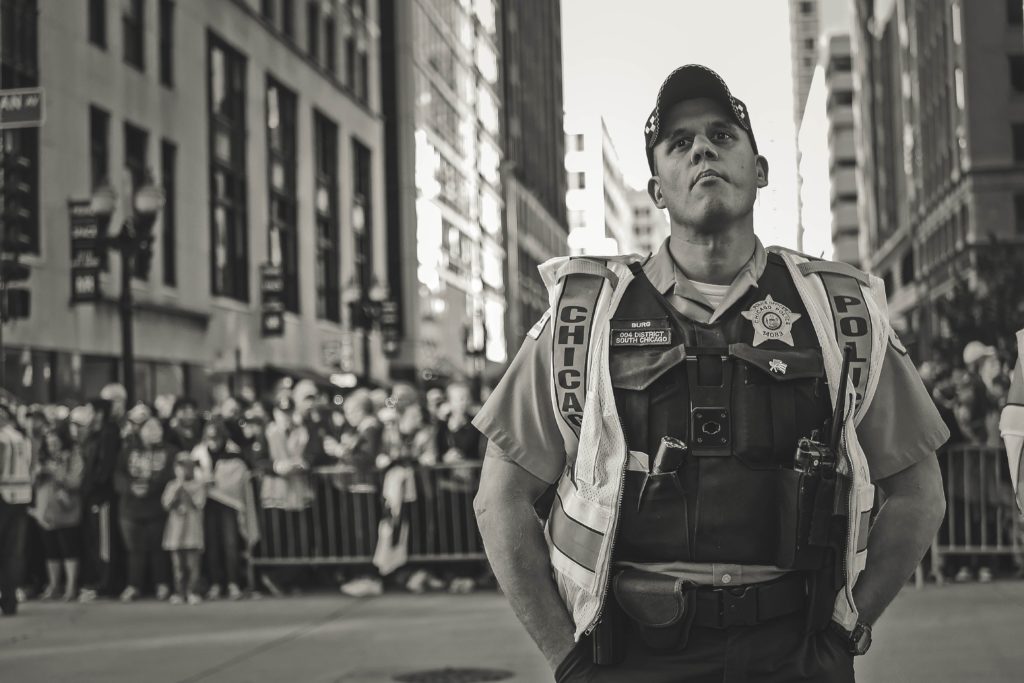photo by Andrzej Muck
In response to the murder of George Floyd in Minneapolis by MPD, many have taken to the streets this weekend to protest police brutality in support of black lives. To that end, Teen Vogue recently published an article giving best practices for recording the police.
While thorough, there are specific laws in Illinois that make recording the police here specific. There was a change in the state law in 2014 making it more difficult, and for the most part it revolves around what does or doesn’t constitute eavesdropping. For the most part, it means making sure that recording officers are aware that you are recording.
Under the surreptitious exception to the eavesdropping law, it is illegal to secretly record an officer. That means, under no circumstances, can you conceal your device to catch a cop off guard.
Do you have to tell the cop that you’re recording? It depends. To avoid violating the surreptitious exception, you may choose to inform the cop that you are recording. They may request that you turn the device off, but don’t let that intimidate you. You do not need their consent to record and you can deny their request that you film.
There are two conditions in which prosecutors may criminally charge a member of the public for recording a police officer:
- When the recording was made surreptitiously; or
- When the police officer had a reasonable expectation of privacy.
There are more resources on how to record the police, including this digital pdf made by the First Defense Legal Aid that includes numbers to call if you or some you know are being held by the local police.
According to the site, anyone can call 1-800-529-7374 to send an attorney from the public defender’s office, free of charge, 24 hour a day, 365 days a year.
Illinois Legal Aid has also compiled a document of tips including copwatching and what to do against police retaliation.







Be First to Comment